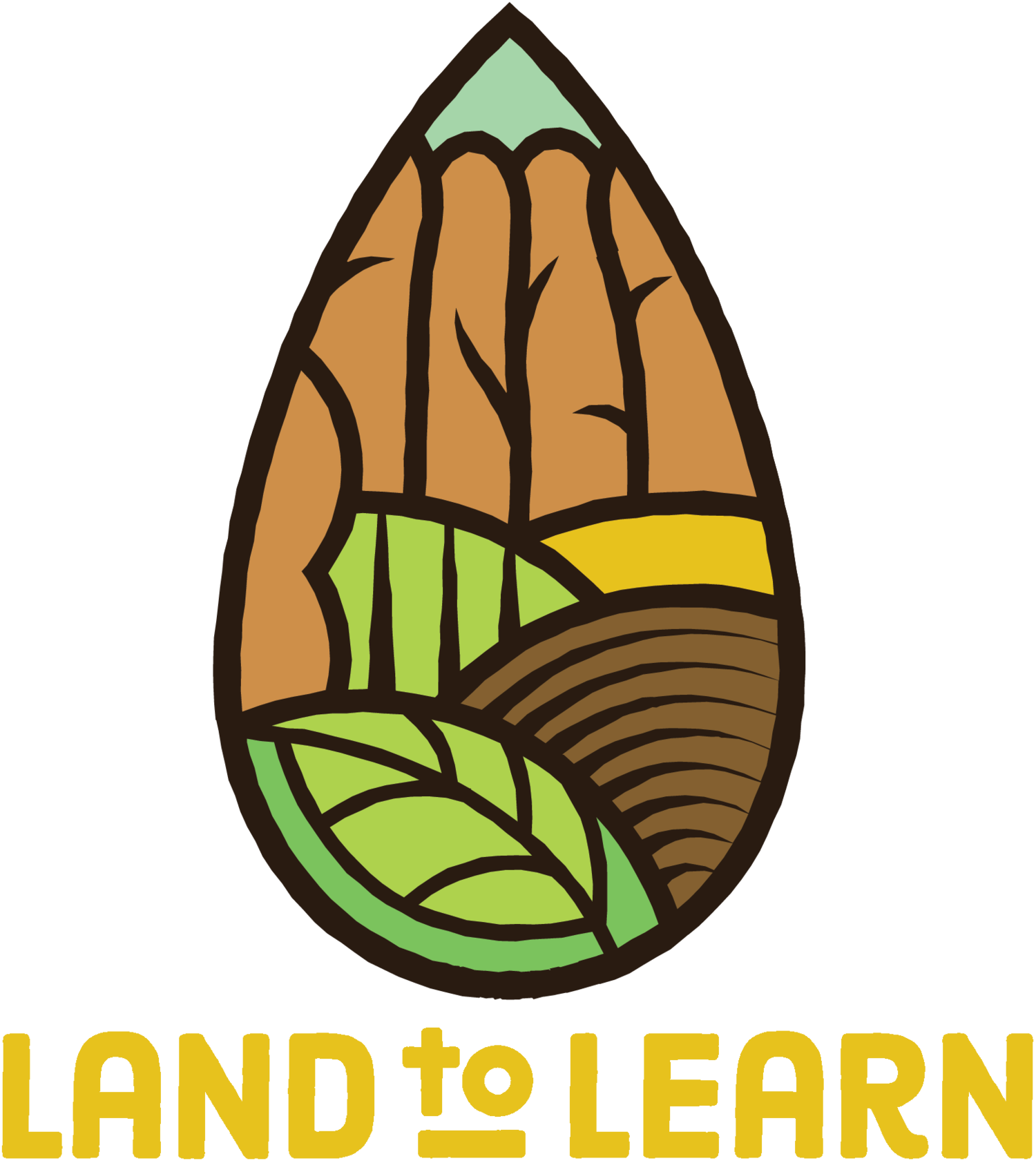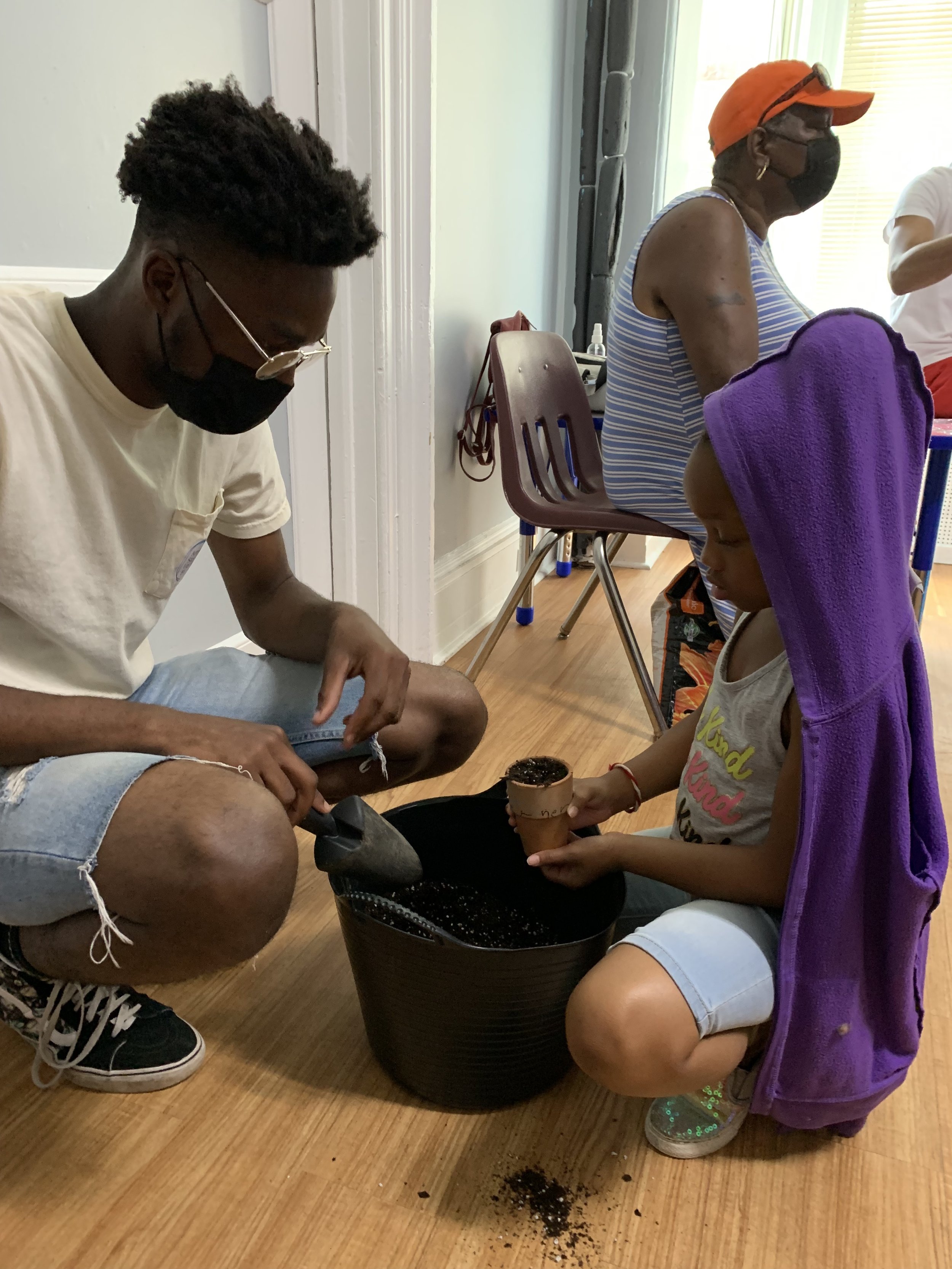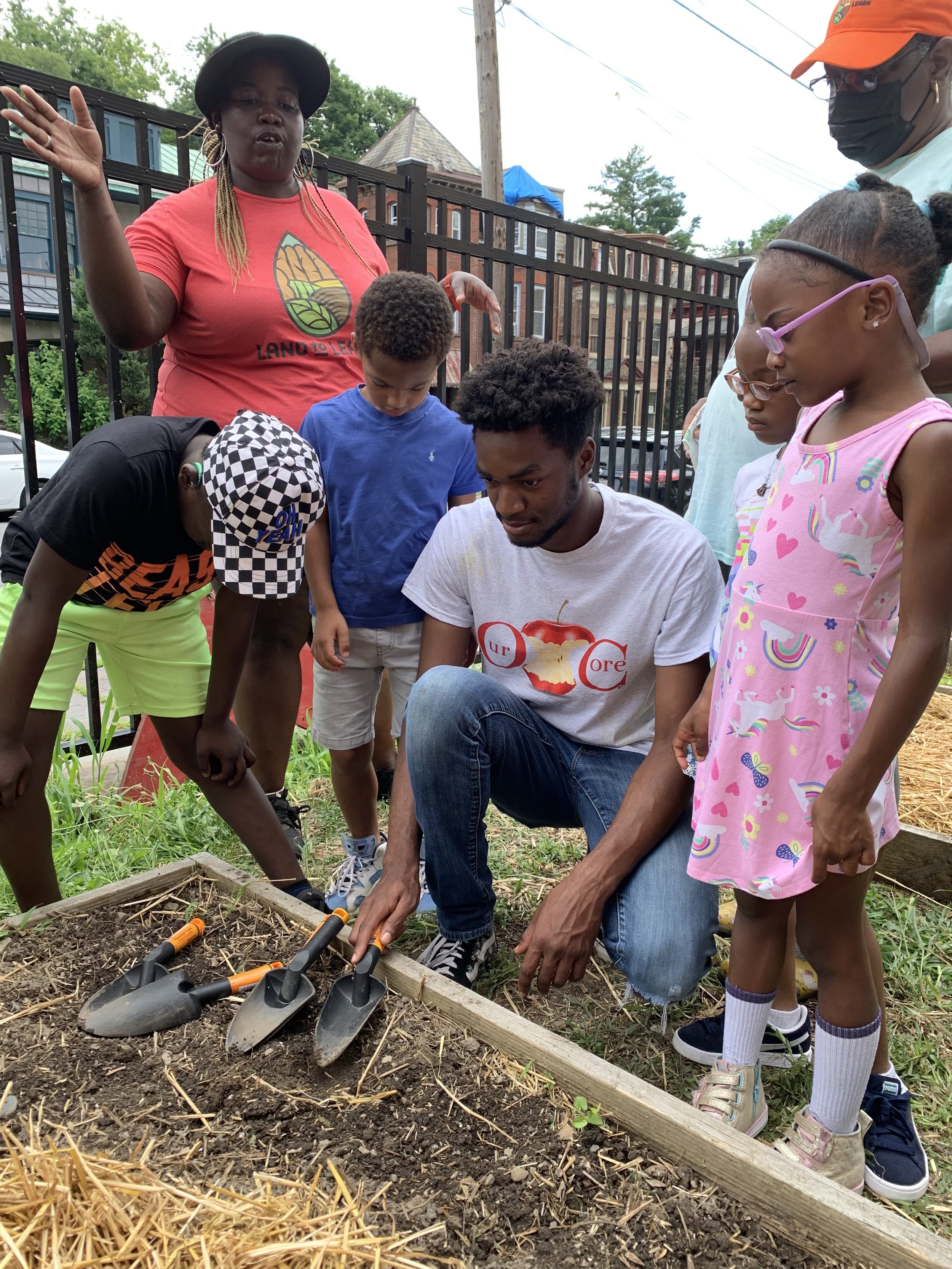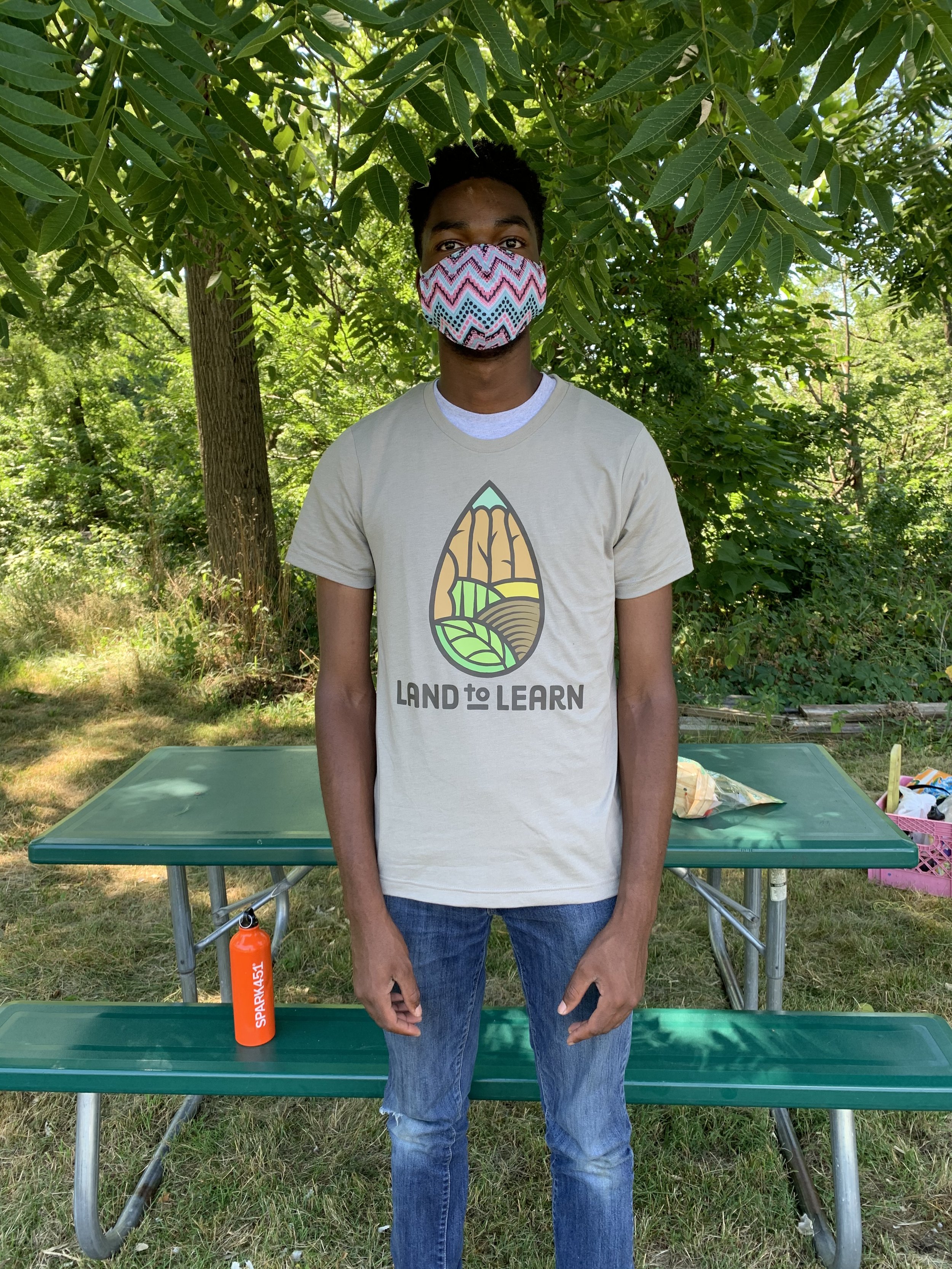Throughout the five years I have worked with Land to Learn and Our Core, I have seen countless students come each summer. Every single one of them has always brought an open mind and eagerness to learn something new. This summer I got to meet 8 wonderful young adults that have been working hard to benefit their community here in Newburgh, New York. This summer for me is a bit different from my previous ones. Since I am older than the other teens, I have taken on a new leadership role. I am learning as we go. I appreciate the hard work that these teens have done since they began in early July. I remember the first day they showed up, they were all shy, nervous and uncomfortable, which tends to happen every year. The first week was short due to the July 4th holiday, so we started with introductions and getting to know each other, learning the basics of gardening like harvesting, and really just taking time to get comfortable with the land on which we are working.
The second week was a little bit more labor intensive but fun. The teens got to meet some baby chickens courtesy of Mrs. Hutchinson, the executive director of Our Core, who showed them how to be kind and considerate to all of the living creatures that occupied the spaces we work in. The teens also learned how garlic is planted, and the different parts of it like the garlic scapes. Then they harvested it and learned how to let it dry. Since Land to Learn manages different school gardens, the teens learned about the benefits of mulching and how to identify weeds from vegetables. They also started to work as a team. That same week they learn how to transplant and seed plants like cilantro, catnip, and peppers. They learned how to use fish emulsion as an organic fertilizer. It does not have the nicest smell, so a lot of teens didn’t like it! That is understandable. For the first time they were also able to share the fruits of their labor with their community by donating it to food pantries and churches. The crew donated Swiss chard, kale and kohlrabi. The last day of the second week was mostly used to work on mending and restoring the beautiful Grand Street Garden next to the Newburgh library, which is a garden that I helped start with Mrs. Hutchinson and some other teens two years ago.
The third week, which is the current week, has been fun and chill. Every year teens from all over the Hudson Valley that participate in agricultural programs gather together on a host farm to have a meal together, work on a project that the host farm might need help with and do different activities utilizing the plants and natural resources that the farm has at its disposal. This past Wednesday we had one of these gatherings, or JAMS, and the host farm this time around was Sky High Farm. In our preparation for the gathering, the teens came up with a couple of recipes to share with the other teens and prepared them a day in advance. When we ventured to the farm we helped pick and clean garlic and we also got to do different kinds of activities like painting signs for vegetables, mixing honey with medicinal herbs, and doing a scavenger hunt with polaroids cameras. Overall, it was a nice experience where all the teens got to experience something new and meet new young people from around the Hudson Valley that are also doing agricultural summer jobs like them.
Maria Herrera, she/her
Anne Saxelby Legacy Fund Fellow and Radicle Roots participant since 2019. Maria is currently studying plant science and liberal arts at Dutchess County Community College.













